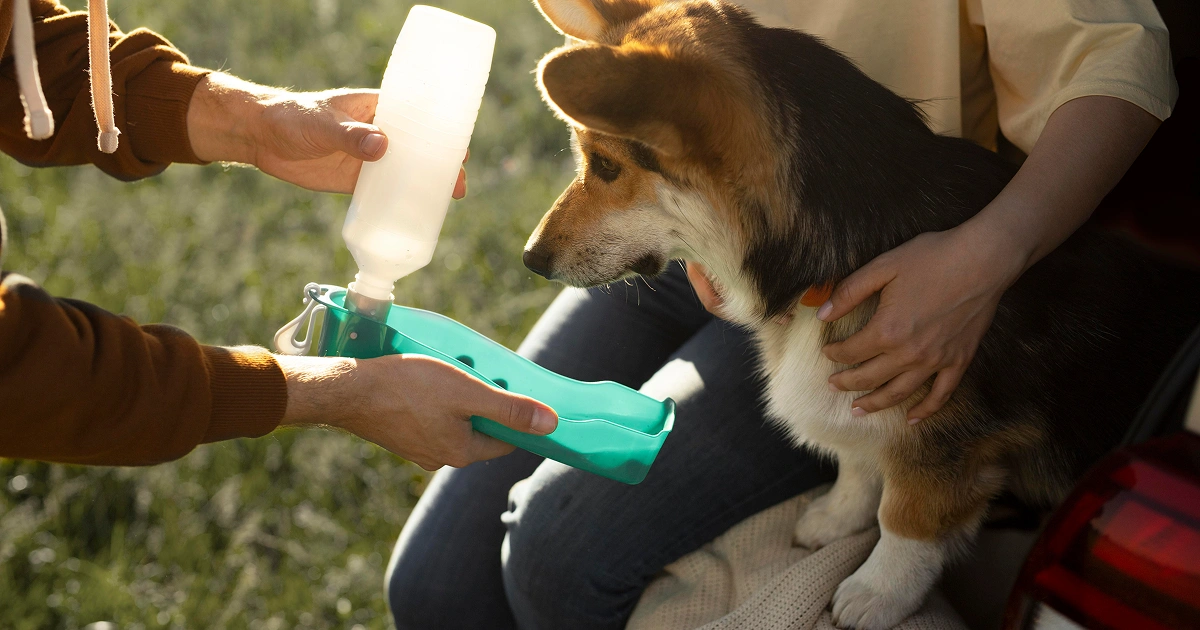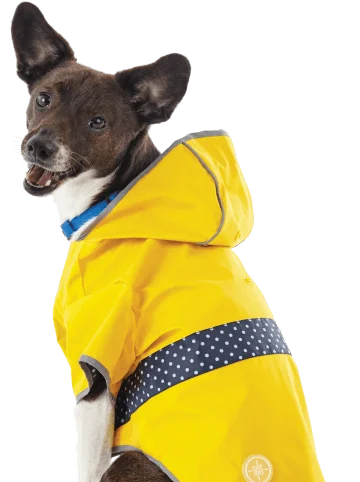
When someone in your family gets injured, you likely head to the medicine cabinet or grab the first aid kit to fix them up. But what happens if your pet gets hurt? Do you have the supplies you need to help them? Having a designated pet first aid kit is not only handy to have at home, but also when you are on the go.
Many people take their dogs on vacation with them, out on errands, or on hikes, but are you prepared if something should go wrong? You never know when your dog might cut themselves on a branch that is sticking out, get bitten by a tick, or eat something they’re not supposed to. Here are some key supplies to have on hand:
- Gloves: You want to keep your hands clean and reduce risk of spreading germs when treating any wounds.
- Gauze pads or roll: Gauze can be effective at stopping bleeding and covering wounds. Get non-stick gauze so it doesn’t adhere to their skin or fur.
- Adhesive tape: To hold any gauze or bandages in place.
- Cotton balls and swabs: These are great for dabbing at smaller wounds or cleaning up around your dog’s eyes, ears, or nose.
- Saline solution: This can be used to clean out wounds. Do not use hydrogen peroxide. Having an eye dropper or needleless syringe can be helpful for flushing wounds.
- Antibiotic ointment: Dab a bit on any smaller cuts or scrapes to reduce risk of infection.
- Towels: They can be used to stop bleeding for larger injuries, to wrap up potentially broken bones, to soak in water to cool your pet down, or for a variety of other uses.
- Disposable ice packs: To reduce swelling or cool your pet down.
- Tweezers: They can be used to remove ticks or splinters or debride wounds.
- 3% hydrogen peroxide: In an emergency, this solution can be used to induce vomiting. Make sure you check with your veterinarian or poison control first. Pay attention to the strength because regular hydrogen peroxide you may use at home is often a higher strength.
- Digital thermometer: To take your pet’s temperature. Make sure it is designed for animals so that you can get an accurate reading. Regular thermometers may not go high enough for pets.
- Flashlight: You may need more light to see the wound clearly or to look in your dog’s ears or mouth.
- Muzzle: If your dog is injured, they may become scared and aggressive. A muzzle can help to keep you and them safer. You never know how they may react if they are in pain or feel threatened.
These are just a few of the basic supplies you may want to put in your first aid kit. Check with your veterinarian for other recommendations or to double-check what you have.
If you’re headed out of town for the day, the weekend, or several days and are unable or don’t feel comfortable taking your pet along, make sure they are boarded at a safe, reputable facility like Lake Wylie Pet Resort. We’ll provide your pet with the quality care and loving attention they desire. Contact us today to schedule your pet’s stay!




